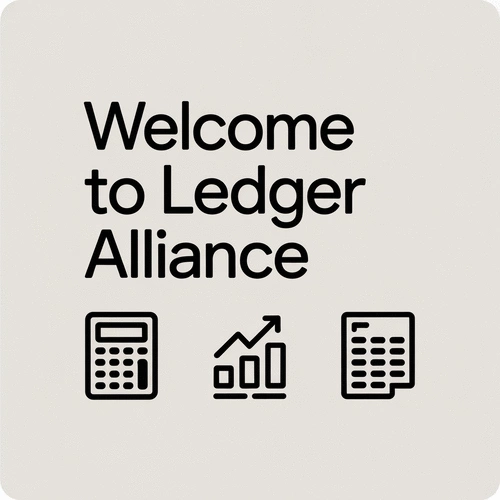As a small business owner in Australia, navigating compliance can feel like traversing a complex maze. The right compliance software can be your roadmap, guiding you through the intricate landscape of regulations and helping you focus on growth rather than getting bogged down by legalities. Let’s dive into what you’ll learn about leveraging these essential tools for your business success.
What You Will Learn
- Compliance software is vital for small businesses, helping to avoid costly penalties and enhance operational efficiency.
- Key Australian regulations to address include the Australian Consumer Law, Privacy Act 1988, and Work Health and Safety Act.
- Governance, Risk, and Compliance (GRC) software is integral for streamlining compliance processes and enhancing decision-making.
- Future compliance software trends will focus on adaptability to new regulations and the integration of AI to proactively manage risks.
- Trialing different compliance software options is essential for finding a solution that meets your business's unique needs.
Why Compliance Software Matters for Australian Small Businesses
Compliance software is essential for small enterprises to avoid penalties and streamline operations. The diagram below highlights key benefits and regulations.
Benefits of Compliance Software
- ✓ Efficiency: Automation of tasks, reduced human error.
- ✓ Real-time Monitoring: Stay ahead of requirements.
- ✓ Data Security: Protects sensitive information.
Key Australian Regulations
- ● Australian Consumer Law (ACL): Fair trading & consumer rights.
- ● Privacy Act 1988: Handling of personal information.
- ● Work Health and Safety (WHS) Act: Safe work environments.
Understanding Compliance Software for Small Businesses in Australia
In today's fast-paced business environment, understanding compliance software is crucial for small enterprises in Australia. With increasing regulations and the need for data security, having the right tools at your disposal can make all the difference. At Ledger Alliance, we firmly believe that compliance software not only aids in meeting legal requirements but also fosters a culture of accountability and transparency. For more detailed guidance, consider exploring our Australian SME Compliance Checklist 2025.
In my years as a financial strategist, I’ve seen countless small businesses struggle with compliance. The good news is that leveraging compliance technology can streamline processes, reduce risks, and ultimately save time and resources.

Why Compliance Software Matters for Small Enterprises
Compliance software is essential for small businesses, mainly because it helps avoid costly penalties and legal problems. Here are some reasons why it matters:
- Efficiency: Automation reduces manual tasks and the potential for human error.
- Real-time Monitoring: Stay ahead of compliance requirements with instant updates.
- Data Security: Protect sensitive information and minimize the risk of breaches.
By investing in compliance software, businesses can navigate complex regulations more easily. I often advise my clients to view these tools as investments rather than just expenses; they provide peace of mind and contribute to sustainable growth.
Key Compliance Regulations Australian Businesses Must Address
In Australia, various compliance regulations need attention from small business owners. Here are some key regulations that you should be aware of:
- Australian Consumer Law (ACL): Ensures fair trading and protects consumer rights.
- Privacy Act 1988: Regulates how businesses handle personal information.
- Work Health and Safety (WHS) Act: Mandates safe work environments and practices.
Understanding these regulations is essential for any business operating in Australia. Leveraging compliance software can help you not only stay informed but also adapt quickly to any changes. For more insights on managing your finances effectively alongside compliance, check out our guide on Building Your Small Business Finances.
Overview of GRC Software: Governance, Risk, and Compliance
Governance, Risk, and Compliance (GRC) software is an integrated approach that helps businesses manage their compliance, risks, and corporate governance. With GRC software, you can:
- Streamline Processes: Integrate compliance management with risk assessments.
- Enhance Decision-Making: Use data-driven insights for strategic planning.
- Strengthen Compliance Culture: Foster a proactive approach to compliance within your team.
At Ledger Alliance, we often recommend GRC solutions to our clients as they simplify the often overwhelming landscape of compliance and risk management. By adopting these tools, businesses can ensure a more resilient operational framework.
Pro Tip
When selecting compliance software, consider a solution that offers customizable features to align with your specific industry needs. This adaptability not sssonly ensures that you remain compliant with existing regulations but also positions your business to swiftly respond to future changes in the regulatory landscape.
Looking Ahead: Future Trends in Compliance Software
As we anticipate the shifts in the business landscape, it's essential to stay ahead of the curve. Future trends in compliance software will shape how small to medium enterprises navigate the complexities of regulatory requirements. With the rapid pace of change, leveraging innovative technologies will be crucial for sustained success.
One significant trend we can expect is the evolution of compliance software to adapt to new regulatory frameworks. In Australia, businesses will need to keep an eye on emerging legislation that affects their operations. This means your compliance software must not only keep pace but also provide proactive solutions that help you stay compliant effortlessly.
Adapting to Evolving Regulatory Environments Beyond 2025
The regulatory environment is constantly evolving, and compliance software must evolve with it. Small businesses will benefit from tools that can adapt quickly to new laws and regulations. This adaptability ensures that your business remains compliant without the need for extensive manual updates.
- Real-time regulatory updates to keep your software current
- Customizable compliance frameworks that align with your specific industry
- Scalable solutions that grow with your business
By focusing on these areas, compliance software can provide the flexibility necessary for small enterprises to thrive in a dynamic regulatory landscape. As a financial strategist at Ledger Alliance, I see the increasing demand for solutions that allow businesses to focus more on growth than compliance. For valuable insights into managing your tax obligations, refer to our Tax Compliance Tips for Small Businesses.

The Role of AI in Future Compliance Solutions
Artificial Intelligence (AI) is poised to transform compliance management in profound ways. With AI, compliance software can analyze vast amounts of data quickly, helping businesses identify potential compliance risks before they escalate. This proactive approach can save time and reduce costs significantly!
- Automated monitoring of regulatory changes
- AI-driven risk assessments to pinpoint vulnerabilities
- Enhanced reporting features that provide actionable insights
Integrating AI into compliance processes means that small businesses can harness the power of technology to streamline operations while maintaining high compliance standards. In the next few years, I foresee a shift where compliance management becomes less about stress and more about strategic growth!
Making the Right Choice for Your Business
Choosing the right compliance software is a pivotal decision for any business. Finding the right fit can set the stage for smooth operations and compliance success.
How to Get Started with Compliance Software Trials and Demos
The journey to select the right compliance software begins with testing options. I recommend starting with trials or demos of various platforms. This allows you to evaluate features, usability, and support before committing to a purchase.
- Identify your key compliance needs to guide your search
- Take advantage of free trials offered by many software providers
- Involve your team in the demo process for comprehensive feedback
These steps will help ensure that you select a solution that aligns with your business objectives and provides the necessary tools for compliance.
Next Steps: Contacting Vendors for Personalized Solutions
Once you’ve explored your options, it’s time to reach out to vendors for customized solutions that fit your unique needs. At Ledger Alliance, we always emphasize the importance of understanding your business's specific requirements and aligning them with software capabilities.
- Prepare a list of questions to assess vendor support and functionality
- Discuss your compliance challenges to see how they can assist
- Request case studies or testimonials from similar businesses
By engaging in meaningful conversations with vendors, you will be well-positioned to make an informed decision that supports your business's compliance journey in the years to come!
Frequently Asked Questions About Compliance Software
- Q: What is compliance software and why is it important for small businesses in Australia?
- A: Compliance software helps businesses meet legal and regulatory requirements by automating tasks, monitoring changes, and managing data securely. It's crucial for Australian small businesses to avoid penalties, streamline operations, and protect sensitive information.
- Q: What key Australian regulations should small businesses be aware of?
- A: Key regulations include the Australian Consumer Law (ACL), which covers fair trading and consumer rights; the Privacy Act 1988, regulating personal information handling; and the Work Health and Safety (WHS) Act, which mandates safe work environments.
- Q: What is GRC software?
- A: GRC stands for Governance, Risk, and Compliance. GRC software provides an integrated approach to manage these three areas, helping businesses streamline compliance processes, enhance decision-making with data-driven insights, and foster a proactive compliance culture.
- Q: How will future trends like AI impact compliance software?
- A: Future trends indicate that compliance software will become more adaptable to new regulations and integrate AI to proactively manage risks. AI will enable automated monitoring of regulatory changes, AI-driven risk assessments, and enhanced reporting to provide actionable insights, making compliance management more efficient and strategic.
- Q: How should a small business get started with choosing compliance software?
- A: Start by identifying your key compliance needs, then take advantage of free trials and demos offered by various software providers. Involve your team in the evaluation process for comprehensive feedback. Once options are explored, contact vendors for personalized solutions and assess their support and functionality.
Recap of Key Points
Here is a quick recap of the important points discussed in the article:
- Efficiency: Compliance software automates manual tasks, reducing human error and increasing productivity.
- Real-Time Monitoring: Stay updated with compliance requirements through instant notifications and updates.
- Data Security: Protect sensitive information and minimize risks of data breaches.
- Key Regulations: Be aware of essential compliance regulations such as the Australian Consumer Law, Privacy Act, and Work Health and Safety Act.
- GRC Software: Governance, Risk, and Compliance (GRC) software integrates compliance management with risk assessment, enhancing decision-making.
- AI Integration: Leverage AI for automated monitoring and enhanced risk assessments to identify vulnerabilities.
- Vendor Engagement: Reach out to vendors for personalized solutions that cater to your specific compliance needs.








